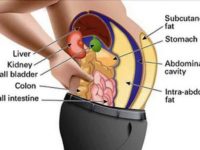Scientists now know a great deal about what you can do to reduce your risk of cardiovascular disease. Follow these essential steps to protect your heart. Although taking these measures doesn’t guarantee that you won’t ever have a heart attack, it should definitely improve your odds.
1. Don’t Smoke
Smoking is the worst thing you can do to your heart (and to nearly all your organs and those of people around you). No level of smoking is safe, and the risk of heart attack rises with every cigarette smoked daily. As soon as you quit you reduce your risk of heart attack, though it takes several years to undo most of the cardiovascular damage. Avoid secondhand smoke, too
2. Monitor Your Cholesterol
Your LDL (“bad”) cholesterol should be less than 130 mg/dL, though optimal is less than 100—and less than 70 if you are at very high risk for a heart attack or stroke, according to American Heart Association guidelines. HDL (“good”) cholesterol should be at least 50 for women and 40 for men. Diet and exercise can help. Total blood cholesterol should be less than 200, though if you exceed that because your HDL is high, while your LDL is under 130, this is less of a concern. Triglycerides (blood fats) should be less than 150 mg/dL, optimally less than 100 mg/dL.
3. Watch for Hypertension
Know your blood pressure and keep it under control. High blood pressure (hypertension) is a major risk factor for heart attack and stroke. Blood pressure measurement is the cheapest, simplest and perhaps most important of all medical tests. Even small changes in your average blood pressure, up or down, can affect your cardiovascular risk. Diet and exercise can help you keep prehypertension from developing into full-blown hypertension, or at least delay it by many years.
4. Control Blood Sugar
People with diabetes are at greater risk for heart attack and stroke than people without it. Even having slightly higher than normal blood sugar levels—a condition known as prediabetes—increases coronary risk. If you have prediabetes or diabetes, be particularly careful about controlling your blood sugar through diet, weight loss, exercise and medication if necessary.
5. Eat For Your Heart
Adopt a diet rich in vegetables, fruits, beans, whole grains and low-fat dairy products. The high intake of fiber from plants, especially soluble fiber, is associated with a reduced risk of cardiovascular disease. Also, eat oily fish two or three times a week for their omega-3 fats, and choose small portions of lean meats. Avoid trans fats (from partially hydrogenated oils). However, do eat moderate amounts of healthy, unsaturated fats, such as nuts and vegetable oils, especially in place of saturated fats (notably animal fats). Limit sugary foods and refined carbohydrates, such as white pasta.
6. Cut Back on Sodium
The recommended daily limit is just 1,500 milligrams (the amount in about two-thirds of a teaspoon of salt) for people over 50, all blacks and those with hypertension, diabetes or kidney disease—that’s most adults. Others should aim for less than 2,300 milligrams to reduce the risk of hypertension and stroke. That’s a tall order, and can be accomplished only by cutting way back on processed foods, restaurant meals and fast foods.
7. Stay Active
Exercise protects against coronary artery disease by helping the heart work more efficiently, reducing blood pressure, raising HDL cholesterol, decreasing the tendency of blood to form clots, moderating stress, helping the body use insulin and helping people maintain a healthy weight. Sedentary people who begin a regular program of exercise can reduce their risk of a heart attack. Walk briskly or do other aerobic exercise for at least 30 minutes most days; more is even better.
8. Maintain a Healthy Weight
Being very overweight increases your risk for cardiovascular disease, as well as hypertension and diabetes, which further increase the risk. If your weight is creeping up, cut calories and develop good exercise habits. Research suggests that being merely overweight (as opposed to obese) does not raise the risk of dying of cardiovascular disease, particularly if you are over age 70. But do your best to keep your weight in a healthy range. Losing weight and then sustaining weight loss may require more than the recommended 30 minutes of moderate exercise most days.
9. Go Easy on Alcohol
Moderate drinking—no more than one drink a day for a woman, two for a man—may reduce the risk of heart attack. (One drink is defined as 5 ounces of wine, 12 ounces of beer, or 1.5 ounces of 80-proof liquor.) Alcohol increases the risk of breast cancer and some other cancers and poses other serious health risks, so weigh these along with the potential benefits. You can reduce your risk of a heart attack without drinking alcohol, of course.
10. Ease Depression and Stress
Do what you can to treat depression and reduce stress. Being chronically depressed may increase your risk for a heart attack. Do not think that it is normal to feel low or miserable most of the time. Seek professional help. Depression can be successfully treated with psychotherapy and/or medication. Lifestyle changes, such as getting regular exercise, can also help. If you have a demanding job or life that gives you little sense of control and causes you chronic unhappiness, it’s important to find ways to reduce your levels of stress
11. Know Your Family History
A history of premature cardiovascular disease in your immediate family (for example, a heart attack in your father or brother before age 55, or in your mother or sister before age 65) raises your risk substantially. You can’t change that, but it should make you pay special attention to your other risk factors and encourage you to take more aggressive steps to control them














